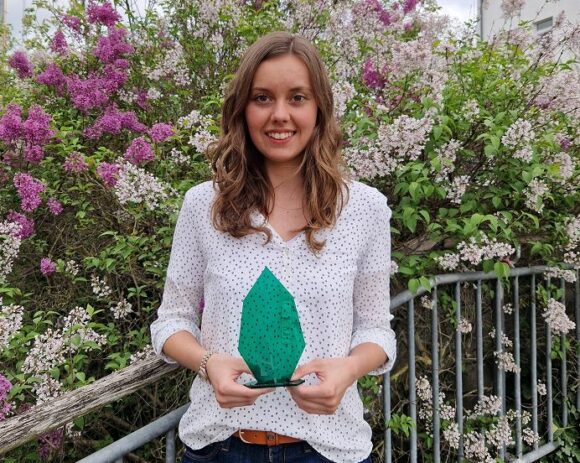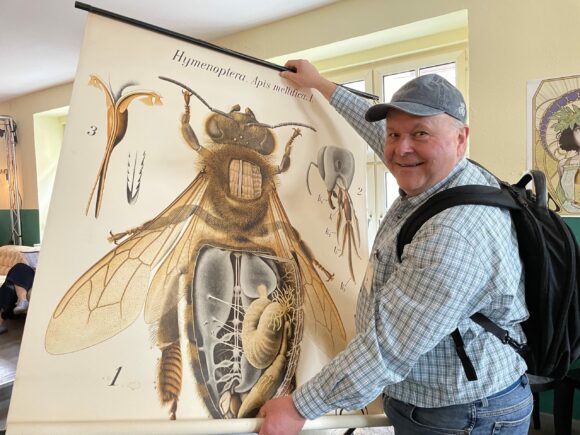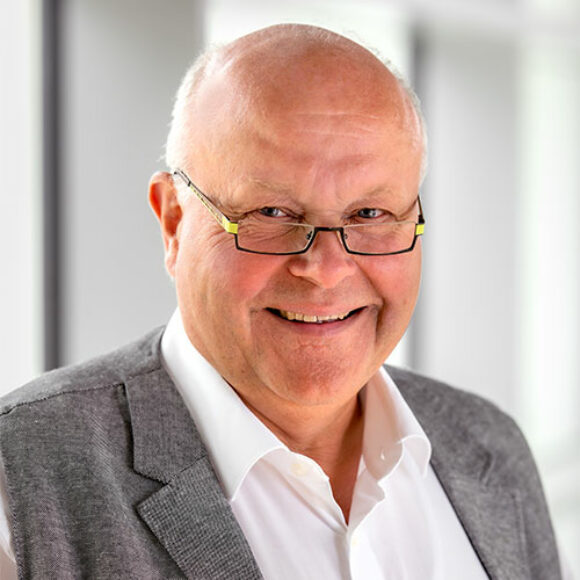The purification of toxic wastewater from the pharmaceutical industry in India is to be improved – this is the aim of a research project at the Institute for Sustainable Water Systems at Hof University of Applied Sciences (inwa). The rapidly increasing production of pharmaceuticals in countries such as India is currently leading to large quantities of problematic wastewater. These can cause enormous health problems for humans and animals if they are discharged untreated into ecosystems. The first pilot plant has now been shipped to India to realise a new type of purification technology.

The Indian subcontinent is producing more and more low-cost medicines for the global market – a large proportion of which are exported to Europe. With an annual growth rate of 10 – 12 %, the industry is aiming to become the global market leader by 2030 and increase its turnover to 130 billion US dollars. This important business with medicines comes at a high price for society and the environment. Wastewater from pharmaceutical production companies, which contains a wide variety of chemicals and active ingredient residues, is often discharged untreated into rivers – with devastating effects on ecosystems and health. Hof University of Applied Sciences and its partners in the “pharmIn2” project now want to counteract this.
Innovative purification technology
The research project, which was launched in 2023, is based on the innovative wastewater treatment technology a3op®, which was developed by the company “up2e! GmbH” from Rain am Lech in Bavaria. “Acoustic energy is combined with a unique gas injection system, resulting in an extremely efficient and highly reactive oxidation process,” says Managing Director Ulla Pöschl, explaining the purification process. In collaboration with the Indian partner company Paques Environmental Technology Pvt, the Institute for Sustainable Water Systems at Hof University of Applied Sciences (inwa) and the Bavarian-Indian Centre for Business and Universities (BayIND), which is also based at Hof University of Applied Sciences, a first pilot plant has now been designed, built in Germany and shipped to Chennai in south-east India for the practical application of the technology.
Waste water must be purified
It is due to be commissioned by the Indian project partner in March. The pilot plant will be used to test the application at wastewater producers on site and thus gain customers for the construction of entire large-scale plants in the Indian pharmaceutical sector.
Pharmaceutical wastewater must now also be effectively pre-treated in India before being discharged into the water, preferably directly on the industrial site.”
Prof Günter Müller-Czygan, research group leader
According to the researcher, the biggest challenge is to install the pilot plant within a specified period after export and then to demonstrate the efficiency of the technology on the local Indian market on a sustainable basis.

Training platform for the Indian economy
As part of the accompanying process, the researchers at Hof University of Applied Sciences are responsible for creating an online learning and training platform for the developed technology. As a hub for knowledge transfer, this is aimed specifically at Indian universities, public institutions and interested companies.
“To improve visibility, we are planning online workshops, webinars, training courses and participation in events and trade fairs on site,” explains project employee Jasmin Mundackal, who joined the project as a research assistant immediately after successfully completing her Master’s degree in Sustainable Water Management and Engineering in Hof and, with her Indian origin, also forms the communicative bridge between the German and Indian partners. As a network partner, the Bavarian-Indian Centre for Business and Universities (BayIND) is responsible for establishing contacts with cooperation partners in science and industry in India and also provides support in marketing the technology.
Expansion to other sectors possible
The target group initially includes pharmaceutical companies, sewage treatment plants and other service providers that have to treat pharmaceutical wastewater. The innovative technology will later be used in other environmentally critical sectors – chemical and food processing companies could also benefit from the introduction of a3opÒ technology.
Funding
The “pharmIn2” project will run until 31 January 2025 and is funded by the German Federal Ministry for the Environment, Nature Conservation, Nuclear Safety and Consumer Protection as part of the “Environmental Protection Export Initiative” funding programme.







